More than anything else, what I remember most from 1981 is playing with Legos and listening to my 45 of “The Winner Takes It All” by ABBA over and over and over again. And before CDs, that was no easy job. Either you had a record player with a “restart” function—where the arm, after automatically lifting up and moving back to its rest at the end of the record, would then automatically lift up again and drop to the beginning of the record—or you had a record player with a broken “restart” function. In that case, you’d have to get up every time the song ended and manually put the needle back to the beginning of the song. And then when going back to your Legos, spread out all across the carpet, almost every time you’d kneel back down and get a tiny brick right in the kneecap. I felt I could truly understand the agony of Björn and Agnetha’s divorce.

10. New Order, Movement
After lead singer Ian Curtis’s death, the remaining members of Joy Division carried on as Joy Division—or sounded as if they had, anyway. New Order’s earliest songs worked with the material on hand, which necessitated re-recording unreleased Joy Division songs (and Bernard Sumner, now on vocals, did quite a Curtis impression). But on Movement they’re past finding their legs. Here are guitar chord solos and drum machines and Sumner’s new voice—you can hear them laying the groundwork for the next two decades of their music.

9. The Teardrop Explodes, Wilder
When recording the follow-up to this, their second album, “artistic differences” within the band finally caused the Teardrop Explodes to, um, implode. Singer Julian Cope would soon embark on a formidable career as a solo artist, and later as a music critic. Though the chances of a reunion are slim: When asked if the Teardrop Explodes might ever reform, he responded: “Would you ever return to having your mother wipe your asshole?”

8. Public Image Ltd., The Flowers of Romance
Dear John Lydon,
I like your new album, but I don’t care what anyone says—the last two were catshit bad. Please send a Sex Pistols poster.
Your friend,
A. Womack
P.S., I’m still not sure about this song with the Butterball turkey.

7. Bauhaus, Mask
Bonus tracks are the music industry’s sucker punch to the record collector. I don’t need another reissue! WHUMP. Oh, but this has two different demo versions of a b-side that was only released in Japan? When Bauhaus’s catalog was re-released in the early ’90s, I faced a similar quandary: I already had almost every album, so why would I buy them again? There was one I didn’t have, though, and most likely because it never turned up in the used bin (a good sign). After hearing Mask for the first time, I realized it was, hands down, their best album; after spending $65 more on the rest of the reissues, I really realized it.
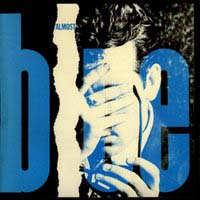
6. Elvis Costello, Almost Blue
The first U.K. pressings of Almost Blue were slapped with a sticker reading: “This album contains country & western music and may cause offence to narrow minded listeners.” Ha ha, hipster. Whatever most listeners expected from Elvis Costello in 1981, an album of covers of country classics written by Hank Williams and Merle Haggard wasn’t it. But it’s a rich collection, and a well-rounded introduction to bygone country. What’s hard to escape, though, is that Almost Blue may have spawned the late ’90s “alt.country” genre—you know, country music for the intelligentsia instead of the true shitkickers at Gilley’s. Apparently nobody, not even Elvis Costello, is perfect.
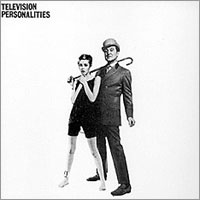
5. Television Personalities, …And Don’t the Kids Just Love It
I have a reverb problem, and I’m certain I’m not the only one. Set me in front of a piano and my foot, magnet-like, goes to the sustain pedal. When it comes to echo, I simply have no restraint. And I’m fairly sure that, from the vocals to all the guitar parts, Television Personalities’ “Diary of a Young Man” is nothing but reverb with perhaps more reverb upon that.
Somewhere Dean Wareham is smiling. And I’m sure even that has a slight echo effect.

4. The Cure, Faith
Similar to Elvis, the Cure is divided into discrete phases that hew fairly well to singer Robert Smith’s weight gain: 1) Early Cure, which had a sad, solemn sound, and lasted through their 1982 album, Pornography; 2) Middle Cure, which became increasingly upbeat—and increasingly profitable—throughout the rest of the ’80s; and 3) Late Cure, which comprises everything from Mixed Up, their phoned-in remix album from 1990, to the present day. Faith epitomizes that early, depressive era of the Cure—and reaches such spectacularly low emotional depths that you’ll wonder how they got out of the mixing room without hanging themselves on the tapes.
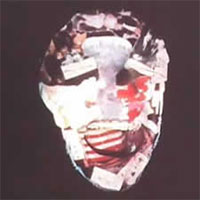
3. This Heat, Deceit
The description “ahead of its time” is a salute followed by a slap: What you’re doing is incredible, like nothing else—and you’ll be long gone before anyone cares. It’s also one of the most frequent phrases used to describe This Heat. The music they were making 25 years ago points to later music (e.g., Unwound, Animal Collective), itself also ahead of its time. More rewarding would be to be right on time. That must be how the person who built that ancient Greek machine that could predict astronomical patterns felt. Or maybe how Attila the Hun felt after he invented DRM.
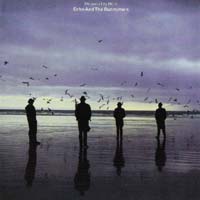
2. Echo & the Bunnymen, Heaven Up Here
The evil twin to 1980’s happy-go-bouncy Porcupines, Echo and the Bunnymen’s second album is a real brooder. For many bands, sophomore records have an unfortunate notoriety—if the new album sounds too much like the first one, it may mean the artist has nothing else to say; if it’s too different, fans of the first album could be alienated. Like few of its fellow sophomores, however, Heaven Up Here gets past the hump by exploring a whole new set of themes—though with a more emotional, darker take on their established sound.
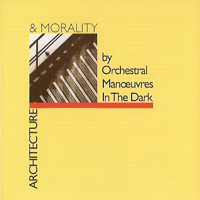
Album of the Year: Orchestral Manouevres in the Dark, Architecture and Morality
For the past 25 years, it’s stood as the blueprint for synth-pop; few have approached an improvement upon its design. Architecture and Morality is nothing short of a masterpiece—and from such an unlikely band. Or so I assumed. For years, my assessment of OMD was that they were overtly radio-tailored and could never be taken seriously. Pretty harsh words from a preteen, I know. Years later, a friend insisted I had to give OMD another chance, and offered this album as reason why. Within the week, years of derision melted away, and I finally saw the light. That friend was Jesus.
And Jesus, I just realized I never thanked you for those Heaven 17 singles either. See you on Sunday.

